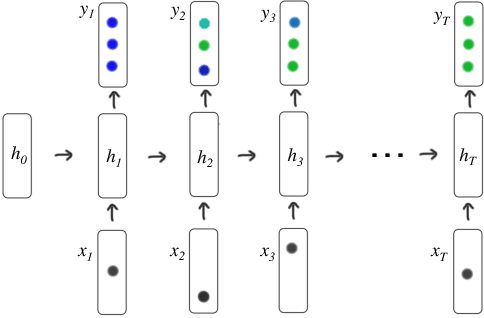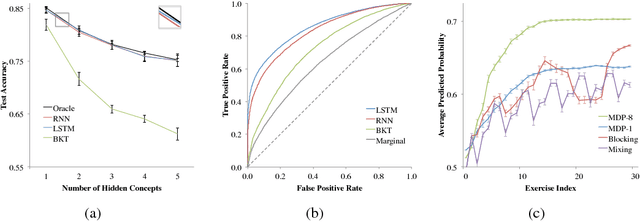Mehran Sahami
Deep Knowledge Tracing
Jun 19, 2015



Abstract:Knowledge tracing---where a machine models the knowledge of a student as they interact with coursework---is a well established problem in computer supported education. Though effectively modeling student knowledge would have high educational impact, the task has many inherent challenges. In this paper we explore the utility of using Recurrent Neural Networks (RNNs) to model student learning. The RNN family of models have important advantages over previous methods in that they do not require the explicit encoding of human domain knowledge, and can capture more complex representations of student knowledge. Using neural networks results in substantial improvements in prediction performance on a range of knowledge tracing datasets. Moreover the learned model can be used for intelligent curriculum design and allows straightforward interpretation and discovery of structure in student tasks. These results suggest a promising new line of research for knowledge tracing and an exemplary application task for RNNs.
Learning Program Embeddings to Propagate Feedback on Student Code
May 22, 2015



Abstract:Providing feedback, both assessing final work and giving hints to stuck students, is difficult for open-ended assignments in massive online classes which can range from thousands to millions of students. We introduce a neural network method to encode programs as a linear mapping from an embedded precondition space to an embedded postcondition space and propose an algorithm for feedback at scale using these linear maps as features. We apply our algorithm to assessments from the Code.org Hour of Code and Stanford University's CS1 course, where we propagate human comments on student assignments to orders of magnitude more submissions.
 Add to Chrome
Add to Chrome Add to Firefox
Add to Firefox Add to Edge
Add to Edge